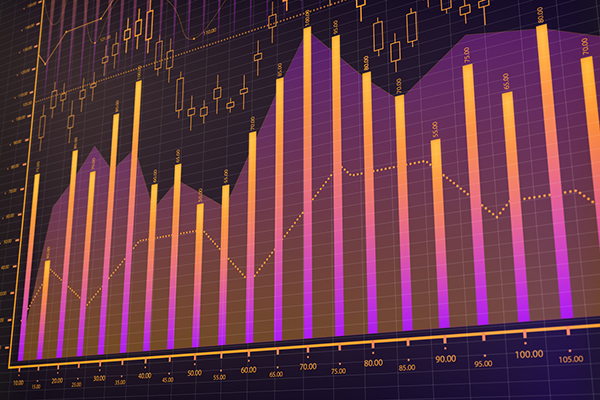Investors turn cautious as stock markets post strong recovery
Kyle Caldwell drills into the latest fund flow statistics to highlight key trends.
5th September 2025 10:43

Investors pulled £1.8 billion out of funds in July, the same month that the FTSE 100 surpassed 9,000 points for the first time. The outflow marked the end of four months of fund sales in positive territory, with inflows coming in at £208 million in June.
For those putting new money to work, money market funds were the top-selling asset class, attracting just over £1 billion. This was an increase on £823 billion in June, and marked the sixth consecutive month of inflows. The current yields on money market funds make them a great option for parking cash.
Fund sales turning negative and the strong demand for money market funds are signs of investor caution following a strong run of performance for stock markets since the US tariff turmoil earlier this year.
-
Invest with ii: What is a Managed ISA? | Open a Managed ISA | Transfer an ISA
From 8 April – when stock markets started rebounding following the announcement of a 90-day pause on US tariffs being implemented – the S&P 500 has gained 24.5% and the MSCI World Index is up 23.1%. Those returns are for UK-based investors.
For US investors, the returns are higher, with the weakness in the US dollar versus the UK pound blunting returns for UK investors. In US dollar terms, the S&P 500 is up 31% and MSCI World is up 29.5%.
The FTSE 100 has also recovered strongly. It is up 18.6% since 8 April. Year-to-date, it has gained 16%, outstripping gains of 6.4% and 3.8% for the MSCI World and S&P 500.
According to the Investment Association (IA), the trade body for the funds industry, the negative month for fund flows was driven by £1.8 billion of equity outflows across global, UK and North America funds.
UK funds saw £718 million of redemptions. The IA says continued selling suggests investors are taking a more cautious stance towards UK equities, potentially in anticipation of the upcoming Budget and its implications for taxation, spending and broader economic growth.
European equities were a bright spot, attracting £276 million in July – a fifth consecutive month of inflows. Japan funds were also in positive territory, with small inflows of £17 million.
- 10 tactics when researching funds, investment trusts and ETFs
- FTSE 100 breaks 9,000: which funds have led the rally?
Tracker funds – those following the ups and downs of a particular index – also saw positive sales of £711 million. Although, this did represent the lowest monthly net sales since October 2024. Allocations into tracker funds in the Europe ex-UK sector (£276 million) and to global funds (£539 million), were the highest. Funds tracking fixed-income indices saw inflows of £205 million.
Overall, fixed-income fund flows were broadly flat with net inflows of £66 million, down from £157 million in June. However, UK Gilts (£156 million) and Mixed Bond funds (£215 million) saw stronger demand.
Miranda Seath, director, market insight and fund sectors at the IA, noted that investors remain in “wait and see” mode.
Seath said: “The return to outflows at the start of July highlights the continued pressures faced by investors trying to balance the risks and opportunities of market volatility, geopolitical tension and uncertain trade relationships.
“These factors have driven investors to depart from equities in July, but we have yet to see if this will be a sustained trend or a temporary adjustment as investors continue to ponder their portfolio positioning, remaining firmly in ‘wait and see’ mode.
“While investors pulled away from North America equity funds, and to a certain extent Global equity funds - although Global index trackers sales held up - flows to European equity funds have been consistent in 2025 and, in July, Europe was the only region to see notable equity inflows.
“The agreement of the EU-US trade deal at the end of the month means that two of the largest global trading blocs have set a clearer course: investors tend to appreciate greater certainty, which could help to open up selective opportunities for those interested in European assets.”
Among the most-bought funds on interactive investor similar trends are playing out. In August, Royal London Short Term Money Market was the top-selling fund, while five of the top 10 best-selling funds were global index funds.
Also piquing investors’ interest are funds that follow the value style of investing. Artemis Global Income and Ranmore Global Equity both feature in the top 10 table for funds, while Temple Bar is among the top 10 most-popular investment trusts.
Another noteworthy trend is investors seeking strategies that offer a mix of growth and income, reflected in the continued presence of City of London (LSE:CTY), JPMorgan Global Growth & Income (LSE:JGGI) and F&C Investment Trust (LSE:FCIT) in the top 10 ranking of the most-bought investment trusts.
These articles are provided for information purposes only. Occasionally, an opinion about whether to buy or sell a specific investment may be provided by third parties. The content is not intended to be a personal recommendation to buy or sell any financial instrument or product, or to adopt any investment strategy as it is not provided based on an assessment of your investing knowledge and experience, your financial situation or your investment objectives. The value of your investments, and the income derived from them, may go down as well as up. You may not get back all the money that you invest. The investments referred to in this article may not be suitable for all investors, and if in doubt, an investor should seek advice from a qualified investment adviser.
Full performance can be found on the company or index summary page on the interactive investor website. Simply click on the company's or index name highlighted in the article.
Editor's Picks